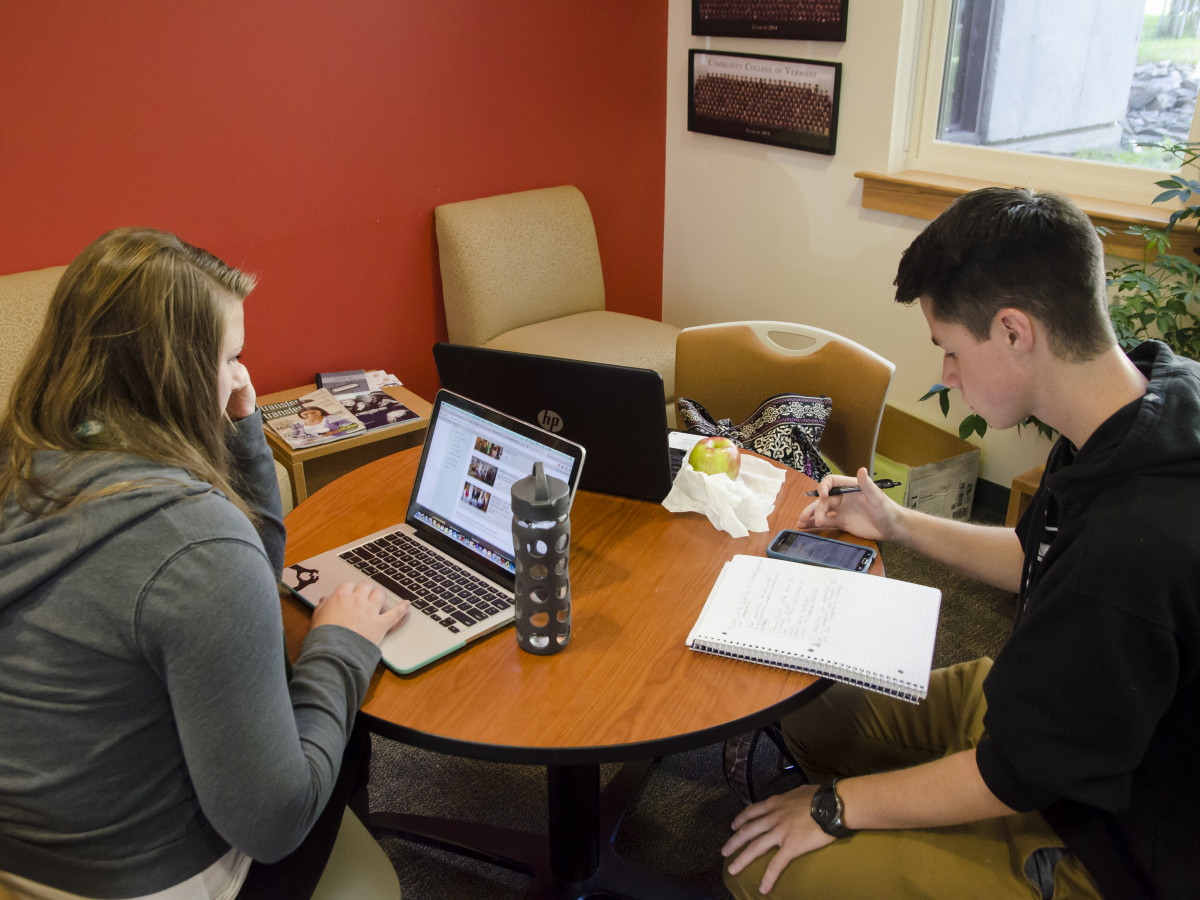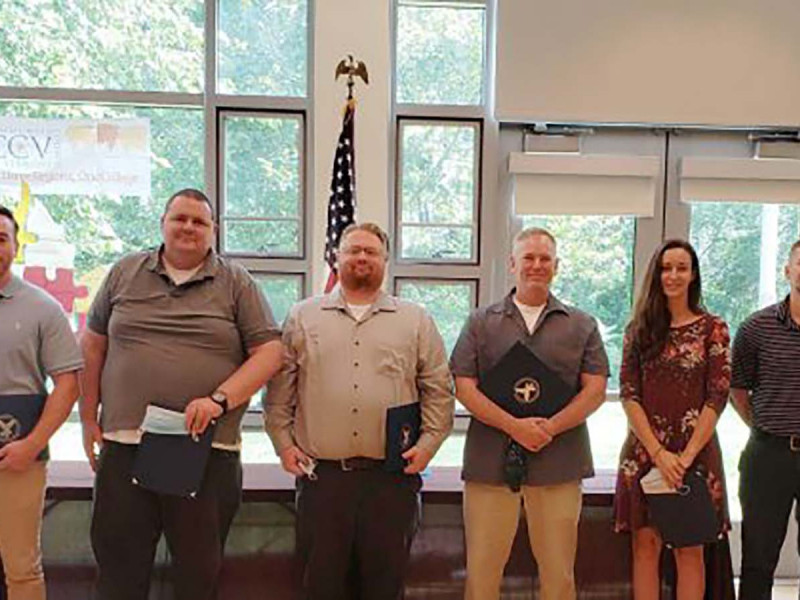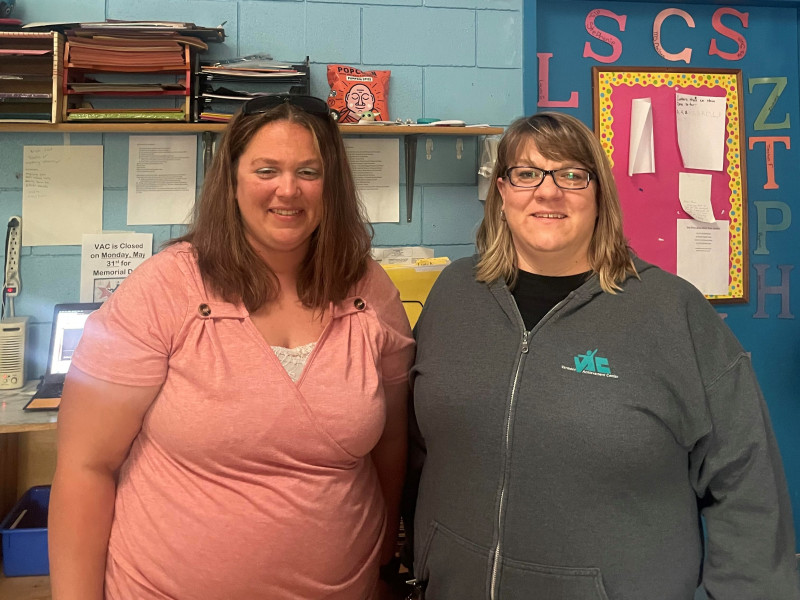BIPOC and New American Supports
Canvas Help
Child Care Resources
COVID-19 Resources
Division of Alcohol and Drug Abuse Programs (ADAP)
Domestic and Relationship Safety
Financial Assistance
Flu Shots and Other Vaccines
Food Assistance Resources
Frequently Asked Questions
Front Porch Forum
Housing
Job Assistance
Learning Support and Services
Legal Supports
LGBTQ+ Supports
Life Gap Plus
Register to Vote
Technology and Internet Access
Tips for Successful Online Learning
Transportation
Wellness Resources
Working Bridges Coordinators
Youth Support
Resource Quick Links
BIPOC and New American Supports
- Vermont Network: Racial justice resources, recommendations, and ways to get involved.
- The Association of Africans Living in Vermont (AALV): Promotes the equal opportunity, dignity, and self-sufficiency of refugee and immigrant individuals and families in Vermont.
- The Vermont Professionals of Color Network: Advancing the prosperity of all Black, Indigenous and People of Color in Vermont.
- Migrant Justice: Dedicated to securing economic justice and fundamental human rights for farmworkers in Vermont.
- VT Human Rights Commission: Vermont’s civil rights enforcement.
Canvas Help
- Canvas Guides
- Canvas Help & Canvas Chat: Click the Help link found on the menu located on the left-side of each CCV Canvas class-site.
- CCV Canvas for Students: A self-paced video tutorial. Approximately 35 minutes.
- Passport for Students: A self-placed tour and tutorial through Canvas.
- CCV Coordinators of Student Advising: Contact your advisor with questions.
- CCV Canvas Support Chat: Having technical issues? Access the CCV Support chat by clicking the the “Chat with CCV Support” button in any of your Canvas Classes.
Child Care Resources
- Community Child Care Support Agencies: Agencies that assist with searching for and subsidizing childcare.
- Child Care Financial Assistance Program
- Bright Future Childcare Information System
- First Steps Scholarship Program: To help Burlington families pay for child care.
- Early Head Start: Can offer services such as child care and education, specialized child care, maternal and child health, nursing and family support, early childhood and family mental health, early intervention and more.
COVID-19 Resources
Substance Use and Alcohol Recovery Resources
- VT Helplink: Call 802-565-LINK or visit www.vthelplink.org.
- eCHECKUP TO GO Alcohol and Cannabis: Use these anonymous, alcohol and cannabis-specific brief feedback tools designed to help college students take a look at their alcohol and marijuana use for free.
- Vermont Recovery Network’s list of statewide recovery organizations
Domestic and Relationship Safety
- RESOLVE: VSCS Resource and Reporting Guide for incidents of harassment, discrimination, child abuse, stalking, domestic/dating violence, sexual assault, or other sexual misconduct.
- List of resources for those experiencing domestic or relationship violence:
- LGBTQI+ Community Resources
- CCV students may access supports, resources, and advocacy through our community organizations.
- SafeSpace
- College Intervention Team
CIT is a team dedicated to assisting students, faculty, and staff who may be in distress or experiencing difficult life circumstances. The primary focus of the team is to take a proactive approach to identifying students who are struggling and provide early intervention, resources, and community referrals. If you are concerned about the wellness of a CCV student, faculty, or staff, please report your concern.
- LGBTQI+ Community Resources
- Vermont Network: Network of 15 non-profit organizations which provide domestic and sexual violence advocacy to survivors of violence in Vermont.
- National Safe Place: A national youth outreach and prevention program for young people in need of immediate help and safety. To learn what to expect when reaching out, click here. If you need help, text “SAFE” and your current location (address, city, state) to 4HELP (44357) and reply with “2chat” for immediate free, confidential help.
Financial Assistance
- VSAC’s Educational Opportunity Center (EOC): VSAC Outreach supports adult learners in accessing college and career training services. In partnership with CCV, EOC counselors can connect students with local community resources or provide support in helping them stay in school. Please call 877-961-4369 to set up a time to talk with an EOC counselor.
- EastRise Credit Union Financial Education: Resources, events, and tools to help grow your confidence as you manage your money.
- Post-Secondary Education (PSE): Part of the Reach Up family of programs, PSE can help qualifying student parents earn an undergraduate degree by providing support services and monthly cash payments (if income eligible).
- Seasonal Fuel Assistance
- Utility Service Assistance
- 2025 Free Tax Resources
Flu Shots and Other Vaccines
- Both the CDC and Vermont Department of Health have information about flu shots and other vaccines. Use the “vaccine finder” on the CDC page to learn where you can get a flu vaccine!
- VCIL Accessible Vaccine Services: at-home vaccinations for older Vermonters and those with disabilities
Food Assistance Resources
- Vermont Foodbanks: Looking for help getting the food you need? Find your local food shelf or call the Vermont Foodbank at 1-800-585-2265.
- 3SquaresVT: A federal program that helps college students buy groceries every month.
- NOFA-VT Community Food Access Programs – offers savings on fresh food.
- WIC: Special supplemental nutrition program for Women, Infants, and Children
Front Porch Forum
- Front Porch Forum is a free, Vermont-based service that provides local connections and information. It is often a good resource for housing, employment opportunities, and low-cost/free items. Consider signing up for FPF to find out what’s happening in your community.
Housing
- Vermont Coalition to End Homelessness: Assistance with obtaining or keeping housing. Regional “Coordinated Entry” lead agencies are available to help people in a housing crisis.
- Vermont Tenants Rights and Resources: Contact their statewide hotline at (802) 864-0099 or visit their website to learn about tenant rights and responsibilities. Attend their free online Renter’s Workshops to access tools and tips for finding housing and getting ready to rent
- Mobile Home Program: Provides resources and advocacy to mobile home park residents. Visit website or call (802) 660-3455 X204.
- US Department of Housing and Urban Development – Vermont housing resources.
- HomeShare Vermont: Matches people seeking homes with people, often older Vermonters, seeking to rent a room in their home in 8 northern and central Vermont counties. Household chores and tasks can be offered in exchange for a reduced rent.
- View this flyer to help out and save on rent.
- Watch a recent HomeShare Vermont webinar to learn more about how the program works.
Job Assistance
- Vermont Department of Labor: Information about available jobs, training programs, and other workforce services.
- HireAbility Vermont: Free, flexible services to any Vermonter or employer dealing with a disability that affects employment.
- Career Services at CCV: Career Services at CCV can help you identify interests, boost your skills, and get the job you’ve always wanted.”
Learning Support and Services
- Accessibility Services for Students with Disabilities: Students with disability accommodations, please contact your advisor immediately should you discover any unexpected barriers or access issues related to online or in-person coursework. Advisors will respond as promptly as possible to support you through this transition and to address any concerns you may have regarding access to your education.
- Tutoring: All students have access to 24/7 on-demand, online tutoring in all courses.
Legal Supports
- Vermont Legal Aid: Free legal help and information for low-income Vermonters facing civil legal problems.
- Vermont Bar Association Lawyer Referral: Tool for finding a lawyer near you. Their attorneys provide an initial 30-minute consultation for no more than $25.
- National Immigration Legal Services Directory
LGBTQ+ Supports
- Pride Center of Vermont: Comprehensive community center dedicated to advancing community and health and safety of LGBTQ+ Vermonters.
- Outright Vermont: Supporting and advocating for LGBTQ+ youth in Vermont.
Life Gap Plus
CCV is committed to dismantling barriers to student success. We’re here to help!
Life Gap Plus is a new CCV program designed to connect you with a wide range of resources, from food assistance to child care, that can help you be more successful in school. Life Gap Plus includes not only financial support to help you bridge challenging situations, but also tools and resources so you can avoid having to face those situations in the first place.
Life Gap Plus includes:
- Life Gap Grants: Just-in-time funding to help address small but unexpected emergency expenses during the semester so that you can stay focused on school. Funds can be used for urgent needs ranging from a sudden loss of childcare, to unexpected medical concerns, to vehicle safety issues keeping you from class, to computer/internet issues preventing you from continuing your education. To receive assistance through the Life Gap Grant, you will need to be currently enrolled in CCV classes and complete the online application. A CCV username and password is required for access.
- Student Resource Centers: Look for Student Resource Centers in every academic center offering in-person classes: Montpelier, Rutland, Brattleboro, Winooski, Newport, Bennington, St. Albans, and Upper Valley.
- Food Assistance: Don’t go to class hungry! Students can make food or pick up a snack at all CCV centers with in-person classes. You can also buy the foods you love, where and when you want, with 3SquaresVT. Find out if you no longer need to meet the student work requirement or if you may be eligible for this federal program by texting VFBSNAP to 61222, emailing 3svt@vtfoodbank.org, or calling 855-855-6181 to talk to a friendly Vermont Foodbank team member about 3SquaresVT today!
If you have questions about the Life Gap Grant, or the Life Gap Plus program, reach out to your local financial aid counselor.
Life Gap Plus is supported by private donors, VSAC, Feeding Chittenden, Vermont Foodbank, Working Bridges, and Vermont 211.
Register to Vote
- Register to Vote and Request Your Mail-in Ballot Today!: Visit the Vermont Secretary of State website: https://sos.vermont.gov/elections/voters/registration/. Questions or comments? Contact Dave Amsden at dave.amsden@ccv.edu.
Technology and Internet Access
- Internet Essentials: Comcast Increases Internet Access and Speeds to Support Low-Income Americans
- Low-Cost Computer: Comcast has a computer available for purchase for as low at $149.99. The computer will arrive in 9-10 days.
- Updated Technology Requirements: Learn what type of browsers and operating systems are most compatible with Canvas.
- Free Public WiFi Hotspots in Vermont: The Vermont Department of Public Service has prepared a map of public buildings in Vermont where WiFi with access to the internet is publicly available. These sites are accessible at all hours from a parked vehicle on the road or parking lot.
- Guide For People With Disabilities: Programs For Low-Cost Internet, Mobile Plans, and Digital Literacy: This guide serves as a blueprint to ensure people with disabilities can find low-cost internet service providers and phone carriers, receive certain discounts, boost their digital literacy, and use current technology regardless of their income and employment status.
- PCs for People:Provides low-cost refurbished computers to households that qualify by income or by participating in a government-based assistance program.
- Lifeline: provides a discount on qualifying monthly telephone service, broadband Internet service, or bundled voice-broadband packages purchased from participating wireline or wireless providers
Tips for Successful Online Learning
- CCV Center for Online Learning: Information for new online students, FAQs, and online learning help.
- Discussions in Your Online CCV Courses: Learn strategies online students use for the most productive discussion forums.
- Online Civility: Familiarize yourself with online etiquette and behavior expectations.
Transportation
- Know & Go: Vermont’s transportation assistance programs including commuting co-ops, ride shares, community drivers, guaranteed ride home, e-bike rebates, and public transportation schedules and information.
Wellness Resources
- Crisis Text Line: The Crisis Text Line serves anyone, in any type of crisis, providing access to free, 24/7 support and information. Text “VT” to 741741 and a live, trained Crisis Counselor will respond quickly.
- Vermont 211: A database containing programs and services available to Vermonters. Dial 2-1-1 to find services in your area.
- 988 Suicide & Crisis Lifeline: Available 24/7, dial 9-8-8
- Vermont Peer Support Line: Available 24/7 at 833-888-2557
- Headspace – An online source for guided meditations to help with stress, sleep, focus, anxiety and more. Visit www.headspace.com/about-us to access.
- Designated Agencies: Agencies in each geographic region of Vermont that provide mental health programs for adults and children. Visit ddsd.vermont.gov/designated-agencies-da to find the DA in your area.
- eCHECKUP TO GO Alcohol and Cannabis Modules: These programs are an anonymous, alcohol and cannabis-specific brief feedback tools designed to help college students take a look at their alcohol and marijuana use. CCV students can use these tools for free.
- 802Quits: Vermont’s trusted source for evidence-based tobacco treatment, accessible by phone, online, or text. Support is free to all residents ages 18 and older. Learn more about the Young Adult Tobacco Cessation Program.
- U Matter U Can Get Help: A site specifically for youth who think they may need help or support so they don’t harm themselves, or for people who may be worried about someone else.
- Trans Lifeline at (877) 565-8860
- LGBT National Hotline at (888) 843-4564
- Vermont Counseling Network therapist finder
- Psychology Today therapist finder
Working Bridges Resources Coordinators
- United Way Resource Coordinators: CCV’s United Way Working Bridges Coordinators are your first contacts for all resources and supports outside of CCV. They can connect you to support for childcare, healthcare, mental health, financial resources, transportation, and everything in between! Reach out to CCV’s Resource Coordinator, Isabel Emsfeld at ccvresourcecoordinator@unitedwaynwvt.org or 802-318-3517 via text, call, or email.
- Working Bridges Resources – July 2025
Youth Support
- Vermont Coalition of Runaway & Homeless Youth Programs: Find an agency in your area to help ensure stable housing and connect youth with additional resources and supports.
- Vermont Family Network: Support for families with children or young adults with special needs.
Frequently Asked Questions
Accessibility Services
- Who will I talk to?
- You will be assigned to work with an accessibility advisor who can help you with this process. This person will also be your academic advisor and support you in meeting your academic goals at CCV.
- What do I say?
- You can simply say, “I have a disability that affects the way I learn. How do I get accommodations at CCV?”
- Do I need paperwork to show that I have a disability?
- This is almost always necessary. A letter or report from a doctor, therapist, or psychiatrist that states your disability and how it impacts your learning is best.
- How long will it take to get accommodations?
- Once you have given an accessibility advisor your documentation and scheduled a time to talk with them, it is possible that you will have your accommodation plan by the end of that day. Other times, depending on the accommodation request and the documentation provided, it may take longer.
- What will happen after I submit a disclosure form or answer “yes” on the CCV application?
- You will receive an email with your next steps. These steps are the same as what you can find on the CCV website.
- Can I bring someone to our meetings?
- Absolutely.
- What if I do not know what accommodations I may need?
- This is okay and is common, especially for first time college students. We will look at your documentation and talk with you about what has worked best for you in the past. Accommodations can also be updated and changed as needed when appropriate.
TalkCampus
- Who will I talk to at first?
- TalkCampus is a social networking app. You may post comments about how you are doing, or ask questions, and an anonymous peer, another college student from anywhere in the world, will respond.
- What do I say?
- You could actually start by saying you do not know what to say. Or something like, “During this past few weeks, I have been overwhelmed with ________.” Other students will have an opportunity to respond with empathy and create connection.
Crisis Text Line
- Who will I talk to at first?
- The first two responses are automated. They tell you that you’re being connected with a trained, volunteer Crisis Counselor from anywhere in the United States and invite you to share a bit more. The Crisis Counselor can provide support, but not medical advice.
- What do I say?
- You could start with, “I just need someone to talk to.”
- What is the difference between Crisis Text Line and therapy?
- The Crisis Text Line Counselors are not licensed therapists. They simply help people in moments of crisis. Crisis counselors practice active listening to help texters find calm and create an action plan for themselves to continue to feel better.
Vermont 211
- What is Vermont 211 and why would I need it?
- Vermont 211 is a website that list a variety of programs and services available to Vermonters that can help with basic needs such as food access, housing, medical care, mental health, and more.
- There are so many resources listed; how do I know where to start?
- Start by clicking on the Resource Directory (you may need to scroll down the page to find it). Then, you may type in your location followed by a selection of category, agency name, or keyword. The search result will identify programs nearest the location you selected.
- Is there an option to just call or text someone instead?
- Yes. You can call or text 211 and someone will be able to help you identify some resources based on your situation.
988 Suicide & Crisis Lifeline
- Why might I use this?
- You may call 988 Lifeline if you are in a suicidal crisis or emotional distress. 988 Lifeline is a national network of local crisis centers that provides free and confidential emotional support 24 hours a day, 7 days a week in the United States.
- What happens when I call or text?
- If you call, you’ll first hear an automated message featuring additional options while your call is routed to your local 988 Lifeline network crisis center. We’ll play you a little music while we connect you to a skilled, trained crisis worker. A trained crisis worker at your local center will answer the phone. This person will listen to you, understand how your problem is affecting you, provide support, and get you the help you need. Texting is similar, though without the music.
- Are there specialized services for LGBTQI+ youth who reach out to 988?
- LGBTQI+ people under 25 can access 24/7 LGBTQI+ support on 988. To call an LGBTQI-trained crisis counselor, dial 988 and then press 3. To text, send the word PRIDE to 988. To chat, you can opt-in on the Pre-Chat Survey above by checking off the box for LGBTQI+ support.
Vermont Peer Support Line (18+)
- Who will I talk to first?
- You will be connected with a local peer who has also been through tough situations.
- What do I say?
- You can simply say, “I am having a tough time and I need to talk about it.”
- What does the peer support person do?
- They listen, talk with you, provide insight, and help you face life’s challenges. You can have ongoing conversations with a variety of peers – differing perspectives can provide you with thoughtful strategies to coped with difficult situation.
U Matter
- Why might I use this resource?
- U Matter is specifically geared toward youth and young adults who are in danger of hurting themselves. It is also a useful resource if you are concerned about someone else.
- How do I use this resource?
- U Matter has many tools within their website. There are quizzes available that you can use to assess how you or someone else might be feeling. There will be recommendations for what you can do next to get help.
- Do I talk with anyone on this website?
- No. This resource is not interactive, but instead provides a lot of information for helping yourself or someone else. This information includes recommended agencies as well as a crisis phone number.
Starting College
- I am feeling nervous about starting college. How do I deal with this?
- First, know that you are not alone. Starting something new can be anxiety-provoking. There will be many other people doing this for the first time, too. Second, make an appointment with your academic advisor. They are a wealth of information regarding resources at school. Not only that, they were once where you are and can provide you with some recommendations for making connections and feeling a sense of belonging.
- When will I start to feel settled?
- Your first week may feel hectic and filled with information, but know that it will calm down. You’ll grow accustomed to having a new schedule and seeing the same people with regularity.




